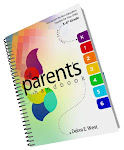Your Child and Technology: What Your Kindergartner Needs to Know Part 2
Your Child and Technology: What Your Kindergartner Needs to Know
Some schools and parents are using technology to boost reading, math, and science skills, but it remains optional for kindergarten learning.
By GreatSchools Staff
Using technology to enhance reading skills
Young kids who use computers as a learning aid get early practice in keyboarding as well as refining their literacy skills. With audio books, software-based stories, and tales read aloud on the Internet, a child can listen to a beloved book as many times as she likes, which helps strengthen reading skills. The class may also be using phonics and reading software such as Read, Write & Type! These technical tools can be invaluable when a child is developing reading comprehension skills. According to Common Core Standards recommendations, kindergartners should be able to answer questions about key details of a text read aloud.
Tech tools that help with writing
Technical tools can also be a boon for kindergartners learning how to write. As spelled out in the Common Core Standards, with guidance from adults, kindergartners can "explore a variety of digital tools to produce and publish writing, including in collaboration with peers." With an interactive story, a child can engage with characters, touch words to hear them spoken, and even "write" themselves into the narrative. Games based on books bring a student into the story so your child can begin to see himself as an "author." Digital book creation, animation tools, and other websites and apps can expand on this idea, letting children write their own stories or storyboards. Kindergartners might also use a free photo software program like Picasa to write simple captions for pictures or their own scanned drawings, which students can then add to a class blog on Typepad or Wordpress, or to a Google document or presentation.
Math gets a techno-boost
Multimedia tools can also help kindergartners reinforce basic math concepts. Kindergarten teachers often introduce students to simple computer math games that teach a child to identify shapes, patterns, and numbers or that help build counting skills. Your child may use draw and paint software programs to do a counting activity or create a pattern. Free websites like Kahn Academy can help kids complete a full math curriculum, whether they need to learn the basics or are ready to race ahead. A bonus for parents whose kids love playing with smartphones or tablets: a host of educational apps (like these) let children touch and manipulate math concepts on the screen.
Science is just a click away
In several years, your kindergartner will need to know how to research topics on everything from sea turtles to supernovas. Learning to do very basic research on the Internet can help him begin building these skills sooner rather than later. In an Internet-connected kinder classroom or computer lab, science can appear up close, magnified, in motion, and in exquisite, realistic detail via a white board, monitor, tablet, or computer screen. Children can watch close-up footage of whales, rainforests, or space. Using apps, they can play with animated versions of the elements in the periodic table or simulations of tornados or the night sky, too. With these tools, fostering your child’s interest in science can be as easy as a click of a mouse or a swipe on a screen.
With additional reporting by Miriam Myers and Christina Tynan-Wood






0 comments:
Post a Comment